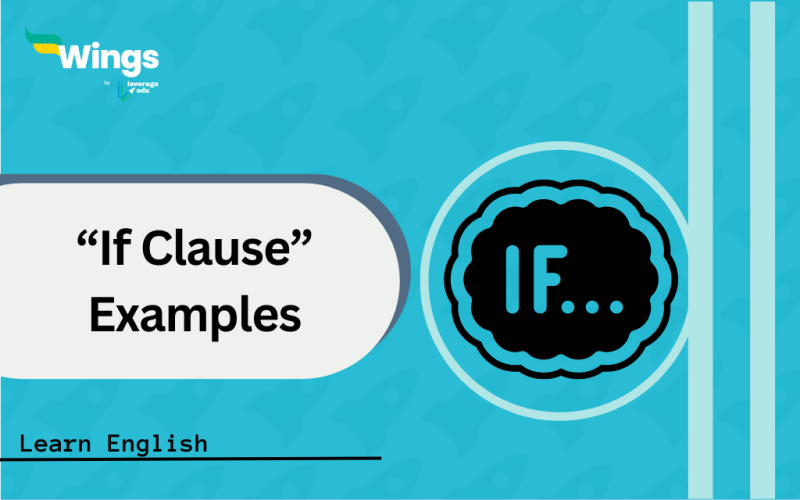“If clauses” are a type of dependent clause used in English that describe circumstances and their potential results. They assist us in expressing our theories about potential outcomes using various methods. They are usually used when we are talking about imaginary or fake situations and possible outcomes. Read this blog below to know more about the usage of “If Clause” with the help of examples.
This Blog Includes:
Read also: What are Clauses
“If Classes” are Used Several Scenarios
Suppose you have a magic wand that can make things occur, but only if certain conditions are met. That’s how “if clauses” work in our language! “If clauses” are like little keys that open different techniques depending on what’s happening around them. They help us speak about what could happen if something else happens first.
Real Present Conditional:
- If it rains, We will bring an umbrella.
- If you need help, just ask.
Real Future Conditional:
- If she studies hard, she will pass the exam.
- If he saves money, he will be able to travel to Europe.
Unreal Present Conditional (Second Conditional):
- If he had more time, I would go to the gym.
- If I won the lottery, I would buy a house.
17+ If Clause Examples
An “if clause” generally begins with the word “if,” followed by a condition defined in the present, past, or future tense. The main clause, which means the effect or result of the condition being fulfilled, follows the “if clause.” Explaining with the help of example:
- If it snows, we will stay indoors.
- If we were a bird, we would fly everywhere.
- If I had studied harder, I would have passed the test.
- If he arrives on time, we can start the meeting early.
- If you had left earlier, they would have caught the flight.
- If you heat water to 100 degrees Celsius, it boils.
- I would appreciate it if they could send me the report by tomorrow.
- I would appreciate it if you could please send me the report by tomorrow.
- If she eats too much junk food, she’ll gain weight.
- If he sings well, he may get the lead role.
- If it snows, colleges may be closed.
- If he misses the bus, he’ll be late for college.
- If she hurrys, she will catch the bus.
- If you eat too much, you’ll get a stomach ache.
- If the power goes out, we’ll need a candle.
- If he had a million dollars, he would travel the world.
- If he had known, he wouldn’t travel the world.
- If he had listened, he wouldn’t have made that mistake.
- If she had told me earlier, she would have gone.
- If it’s sunny yesterday, she will organise a picnic.
- If he got a job, he’d save for a car.
Read more: Coordinating Clause
FAQs
What do you mean by “if clause”?
As stated above, an “if clause” specifies the situation that must have already happened for the main action to occur.
What are the types of “if clauses”?
There are different types of if clauses, including zero conditional clauses, first conditional, second conditional, third conditional, and mixed conditional, each used to express different levels of probability or hypothetical situations.
How can you enhance your understanding and usage of if clauses?
Practice using if clauses in various conditions and consider how they are used in conversations, reading material, and media.
Related Reads
| Synonyms of Welcome | Subordinating Clause Example with Meaning | Synonyms of Jovial |
| List of Conjunctions | Idioms to Express Sadness | Clauses Archives |
This was all about the if clause with examples in English grammar. I hope you understand the concept and know how to proceed. You can also follow the Learn English page of Leverage Edu for more exciting and informative blogs.
 One app for all your study abroad needs
One app for all your study abroad needs














 45,000+ students realised their study abroad dream with us. Take the first step today.
45,000+ students realised their study abroad dream with us. Take the first step today.

